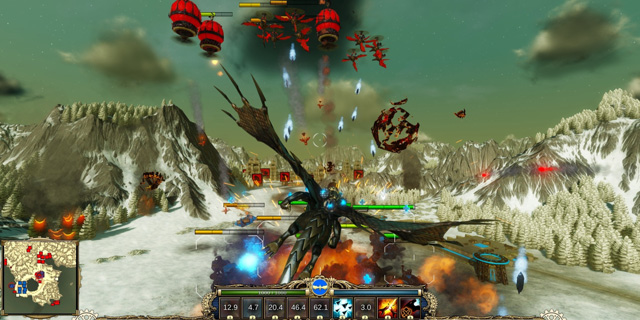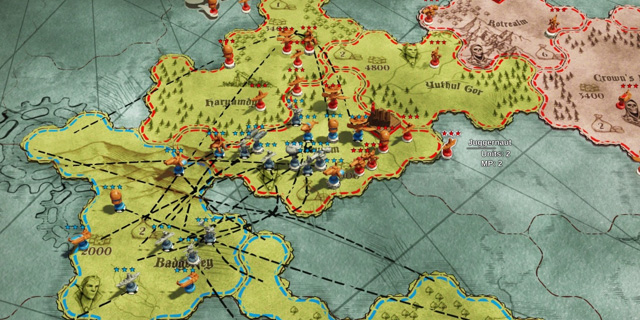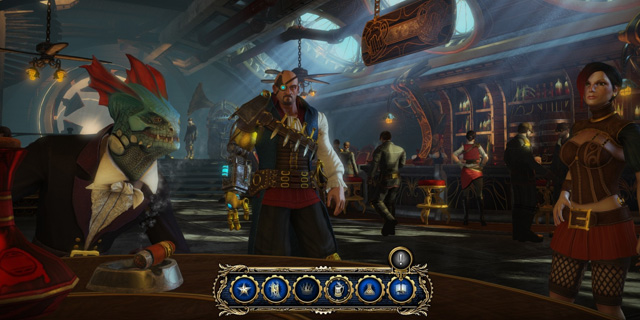
Divinity: Dragon Commander is a game that flew under the radar for quite a while, but it offers an interesting blend of strategy mechanics, both in and outside of missions. Divinity is an established, long-running RPG franchise, but Dragon Commander is an experimental first foray into strategy.
The main game is built around a turn-based campaign. You play as the son of the recently-deceased Emperor, and as you might expect, you need to fight your siblings for the crown. You do so by winning and defending territories on a map.
Between turns,you find yourself on your ship with your generals, and through them you can set diplomatic or economic goals and government policy, which effects the rest of the game. Often, these decisions require a choice between long-term and short-term bonuses. This aspect is reminiscent of StarCraft II, though the decisions made here have a bigger effect over the rest of the game. You can also choose to attack or defend territories during this phase.

The political interactions here can vary from who you choose to marry — usually for political or diplomatic reasons — to answering petitions about some surprising topics, such as gay marriage, gender equality and gun control. That said, the game is by no means a serious analysis of real world politics. Each non-human race will send diplomats to represent their cause, usually taking it to an extreme. In keeping with the humorous style of the world, they tend to be rather distinctive and often silly characters, though gaining their support can be of help during missions.
Also relevant is the opinion of your council. Their support, or lack thereof, can also have an effect on several aspects of the game. You can be a benevolent ruler, a tyrannical warlord or anywhere in between. Your choices reflect the opinions of your people and neighboring kingdoms, and you deal with both benefits and consequences from these decisions.

The battle segments play much like a typical real-time strategy experience. Troops are fairly basic, and can be commanded en masse thanks to the ability to zoom out to show the entire map (much like Supreme Commander‘s tactical view). During these battles, you can personally enter the battlefield as a dragon, at the cost of the ability to issue orders.
Your dragon form can turn the tide of battle, and offers an interesting change of pace, especially in a battle you have a clear advantage in. However, being a dragon doesn’t break the game. Here’s why: you can’t react as quickly to changes in the battle while you are a dragon, and you can only be in one place. I was happy to learn that the dragon form wasn’t simply a battle-winning superpower, and was instead a balanced part of the strategy.
While your empire’s economy has a direct effect on your ability to make war, the only resource that must be managed during a mission is your recruits. The majority of time spent in a mission is related to managing your troops, instead of building up a base.
Despite some obvious inspiration from several other strategy games, Dragon Commander plays like nothing else. I felt that each major area of the game could use a little more depth, though I can understand the need to keep the learning curve to a minimum (especially for a first foray into the genre).
I don’t think it’s going to dethrone eSports giants like StarCraft II anytime soon, but if you are looking for a strategy game that does something new, Divinity: Dragon Commander is definitely worth checking out.
Pros: Combines strategy elements in an innovative way
Cons: Could use more depth, crashes occasionally



















